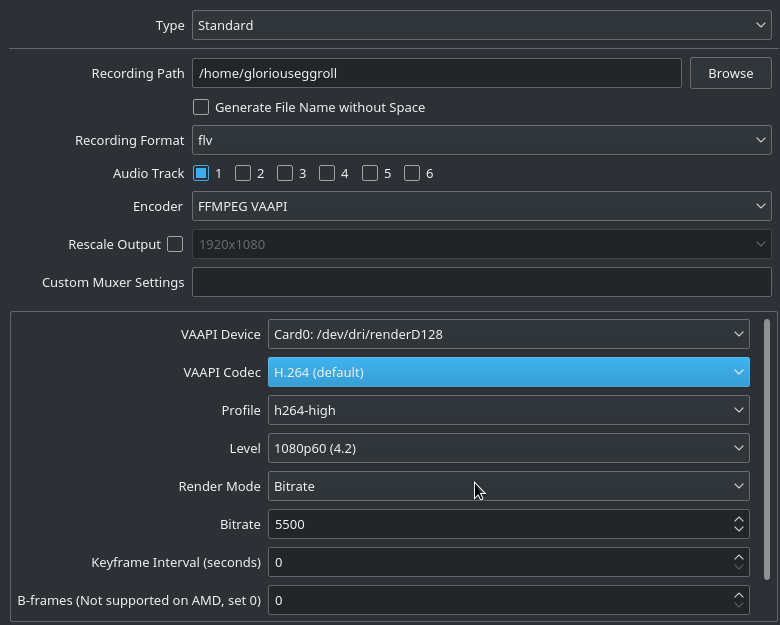Has anyone tried this methode with libva from Intel Media Server Studio?
i am getting this error in logs:
libva info: VA-API version 0.99.0
libva info: va_getDriverName() returns 0
libva info: User requested driver 'iHD'
libva info: Trying to open /opt/intel/mediasdk/lib64/iHD_drv_video.so
libva info: Found init function __vaDriverInit_0_32
libva info: va_openDriver() returns 0
warning: [VAAPI encoder]: found no exact match for profile, defaulting to best match 'constrained baseline'
error: [VAAPI encoder]: "vaCreateContext(enc->display, enc->config, enc->width, enc->height, 0x1, ((void *)0), 0, &enc->context)": resolution not supported
error: [VAAPI encoder]: failed to initialize encoder for profile constrained baseline
Logfile:
https://gist.github.com/anonymous/66c48de31926dbee14678886f9333990
i am getting this error in logs:
libva info: VA-API version 0.99.0
libva info: va_getDriverName() returns 0
libva info: User requested driver 'iHD'
libva info: Trying to open /opt/intel/mediasdk/lib64/iHD_drv_video.so
libva info: Found init function __vaDriverInit_0_32
libva info: va_openDriver() returns 0
warning: [VAAPI encoder]: found no exact match for profile, defaulting to best match 'constrained baseline'
error: [VAAPI encoder]: "vaCreateContext(enc->display, enc->config, enc->width, enc->height, 0x1, ((void *)0), 0, &enc->context)": resolution not supported
error: [VAAPI encoder]: failed to initialize encoder for profile constrained baseline
Logfile:
https://gist.github.com/anonymous/66c48de31926dbee14678886f9333990


